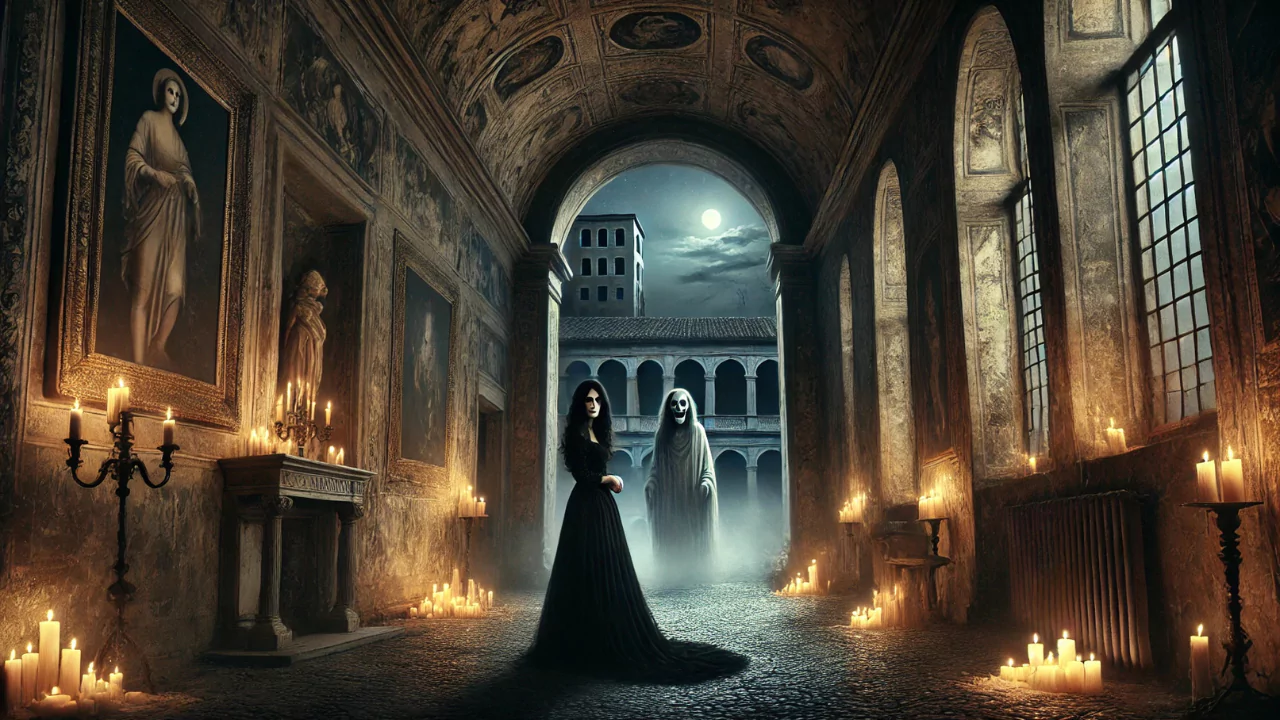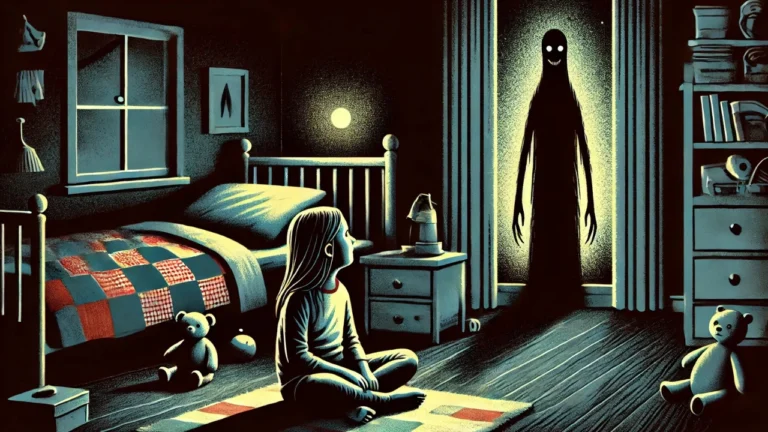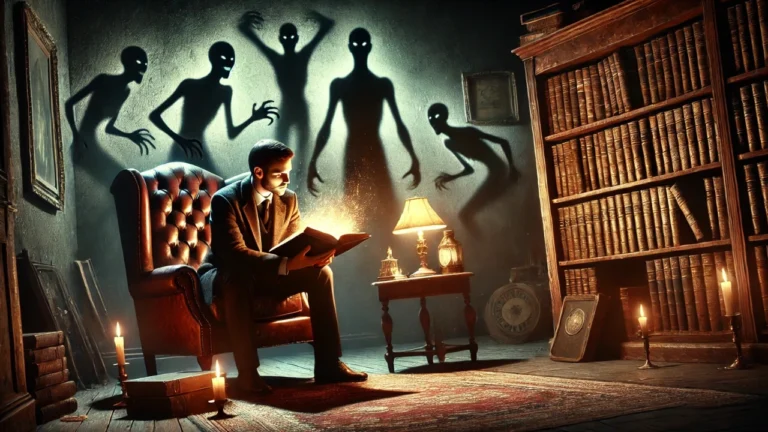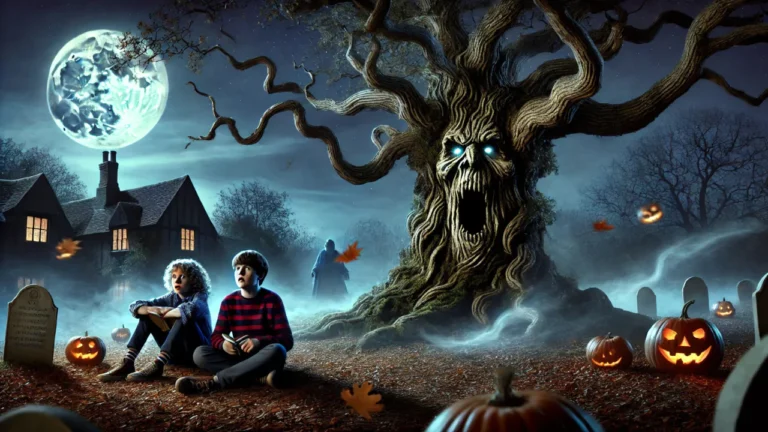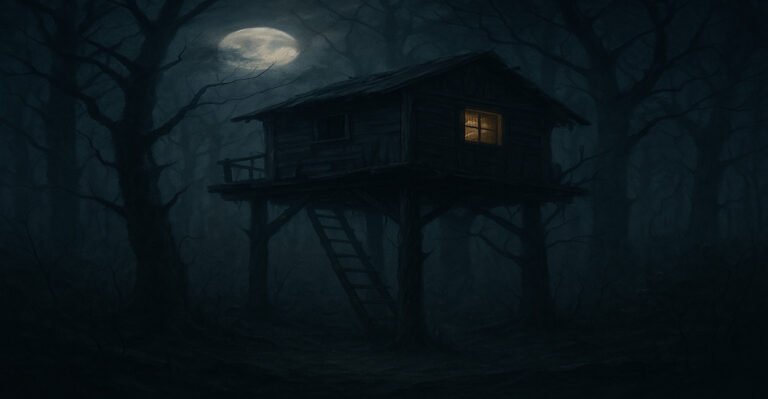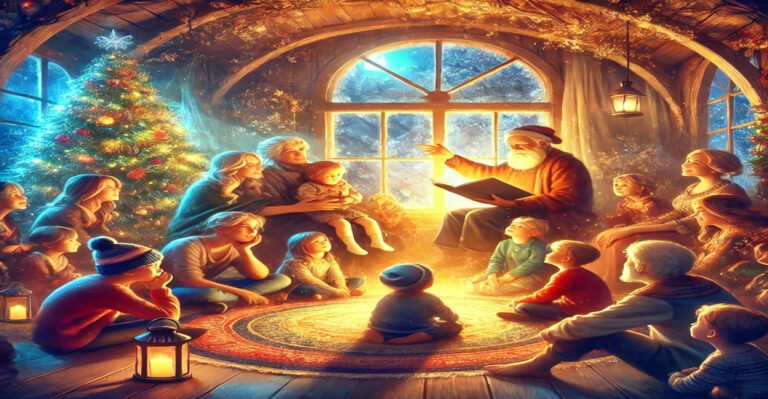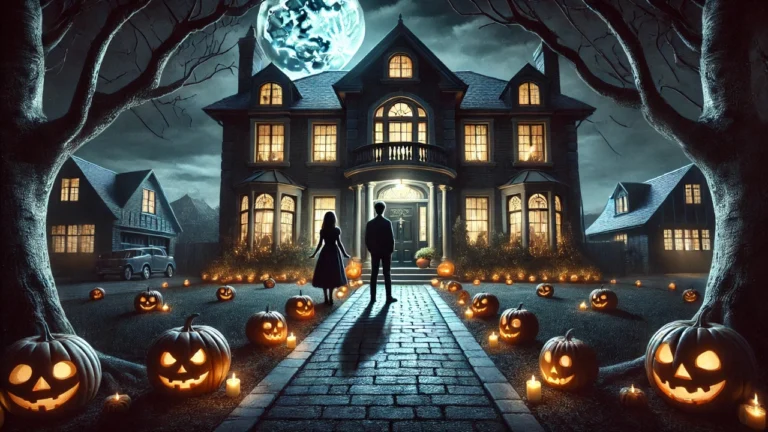Shadows of the Eternal City
The year was 1500, and Rome was both a marvel and a monstrosity. By day, its pebbled streets buzzed with merchants’ laughter and the clang of smiths’ hammering iron. By night, however, the Eternal City transformed into a labyrinth of shadow and whispers, where torchlight seemed to hold back something ancient and unfathomable.
Marcia, a widow in her thirties, lived alone on the Via Giulia in a crumbling palazzo inherited from her husband. The house was grand in its bones but worn to decay, with ivy creeping over its stone walls and the scent of mildew clinging to its tapestries. Every night, as the city slept, Marcia would sit by the small marble shrine in her bedroom, lighting a votive candle for her late husband, Marcello. But as the weeks of Lent passed, her prayers began to feel hollow. The air itself seemed heavier, and the shadows in her home grew darker, more persistent.
It started subtly. One evening, while sewing by the faint glow of an oil lamp, Marcia heard soft footsteps in the hallway. She froze, her needle in midair. The sound was deliberate: slow, measured, almost teasing. Yet when she opened the door, the corridor was empty, its flagstones cold and undisturbed. She told herself it was her imagination, the grief playing tricks on her, and returned to her embroidery.
But the sounds didn’t stop. Each night, the footsteps grew louder and closer. Then, other disturbances followed: doors creaked open of their own accord; the smell of charred wood wafted through the house, though no fires had been lit; and worst of all, the votive candle at Marcello’s shrine began to flicker, even when there was no draft.
One evening, desperate for solace, Marcia sought out Father Niccolò at the nearby Church of Santa Maria sopra Minerva. The priest was a thin, ascetic man with a face as worn as the relics in his church. She confessed her fears to him, the tremble in her voice betraying the dread she had tried so hard to contain.
“The dead sometimes do linger,” he murmured, his voice low and steady. “But Rome is old, Signora Marcia, far older than you or I. What haunts you may not be your husband.”
“What do you mean?” she asked, her voice barely above a whisper.
“Beneath the streets we walk, beneath the ruins and the basilicas, there are remnants of something far older. Pagan altars; forgotten gods. Some wounds in the earth never heal.”
He gave her a small vial of holy water and a handful of blessed salt. “Sprinkle these in the corners of your home,” he advised. “And pray.”
Marcia returned to the palazzo with a renewed sense of purpose, though unease still coiled in her chest. She did as Father Niccolò had instructed: she sprinkled the salt and water in every corner, whispered prayers, and hoped for the best. For a brief moment, the house did feel lighter, as if the shadows had retreated; thus, she allowed herself a rare moment of peace and drifted into an uneasy sleep.
But the trouble was far from over. That night, the haunting escalated. Marcia awoke to the sound of whispered voices; the voices sounded as if dozens of people were murmuring just beyond her door. Her throat tightened. Clutching the holy water, she crept into the corridor, sensing the air being colder than usual, with a faint, sulfurous smell lingering.
Then she saw it.
At the other end of the hallway, an indistinct tall figure stood. It had quite an oppressive presence. It was neither man nor beast but a grotesque amalgamation of both—a head crowned with antlers; a face obscured by shadows; eyes with a faint glow. The whispers grew louder, a cacophony of voices overlapping in a language she did not understand.
Marcia staggered backwards but managed to regain her balance. She hurled the holy water toward the figure with her trembling hand and splashed more onto the floor than her target. And that is when the whispers ceased abruptly. For a moment, there was silence. The voices had stopped, yet the silence seemed confusing.
Rightly so because then came a deep guttural laugh that shook the house like a tremor. The figure lunged forward though its movement was more a ripple of shadow than physical motion. Marcia fled, slamming the bedroom door behind her and pressing her back against it, praying with a desperation she had never known until the first light of dawn seeped through the window.
When she finally dared to open the door, the hallway was empty. The house was eerily still. It was as if nothing had happened the previous night. But Marcia knew she could not stay there another night. She sought out Father Niccolò again, recounting the apparition through choked sobs. This time, the priest’s face grew pale.
“You must leave that place,” he said gravely. “What you describe is no restless soul. It is something far older. Far worse.”
“But what is it?” she demanded. “Why my home?”
Father Niccolò hesitated. “Long ago, before this city became the heart of Christendom, it was a place of blood and sacrifice. Your home… it may stand where such rites once occurred. Such things leave scars, not just on the land but on the fabric of the world.”
Terrified but determined, Marcia agreed to allow the priest to bless the house. So that evening, he arrived with two acolytes, with arms laden with censers and holy books. They began the rite at dusk, chanting prayers that echoed through the empty halls. The scent of incense filled the air, blending with the ever-present smell of decay.
At first, the blessing seemed to work because the atmosphere started to feel light. Even Marcia felt a glimmer of hope. But as the priest sprinkled holy water over the marble shrine, that guttural growl reverberated through the house again. The candles extinguished themselves and plunged the room into darkness.
The shadow figure materialized once more, its form even more monstrous than before. Antlers scraped the ceiling, and the murmuring voices returned, louder and more frenzied. The acolytes screamed and fled, but Father Niccolò stood his ground, clutching his crucifix.
“In nomine Patris et Filii et Spiritus Sancti!” he shouted with a trembling yet resolute voice.
The creature recoiled slightly, its form writhing as if in pain. But it was not enough. With a sudden, horrific roar, it surged forward. The priest fell on his back, his prayers faltering as the shadow enveloped his whole body. Marcia screamed, her body paralyzed by an intense, burning cold.
Then, as suddenly as it had appeared, the figure vanished. The house was silent once more, save for Marcia’s ragged breathing. Father Niccolò lay motionless on the floor, his face pale and his eyes staring blankly at the ceiling.
Marcia fled that night, never to return to the palazzo. She lived the rest of her days in a modest cottage on the outskirts of Rome, far from the city’s ancient heart. Though she never spoke of what she had seen, the fear never left her eyes.
And the palazzo on Via Giulia? It still stands, though no one has lived there for centuries. Locals say they hear whispers if they pass by at night, and sometimes, they catch a glimpse of a shadowed figure watching from the windows, its antlers silhouetted against the moonlit sky.

Syeda Izma Mashkoor is a passionate storyteller and rising literary talent. She is a gifted writer with an exceptional flair for storytelling. With a strong academic background in English and a natural creative spark, she has mastered the art of writing compelling stories that captivate readers worldwide. Specializing in horror, fables, and fantasy, Izma brings her stories to life with vivid imagination and deep social insight.
Beyond writing, she explores painting, crafting, and sketching, drawing inspiration from history and cinema. Her storytelling stands out for its ability to blend contemporary societal themes with engaging plots, making her work both thought-provoking and entertaining. Guided by her motto, “Talent without hard work is nothing,” Izma continues to push creative boundaries, leaving a lasting impact on the literary world.

